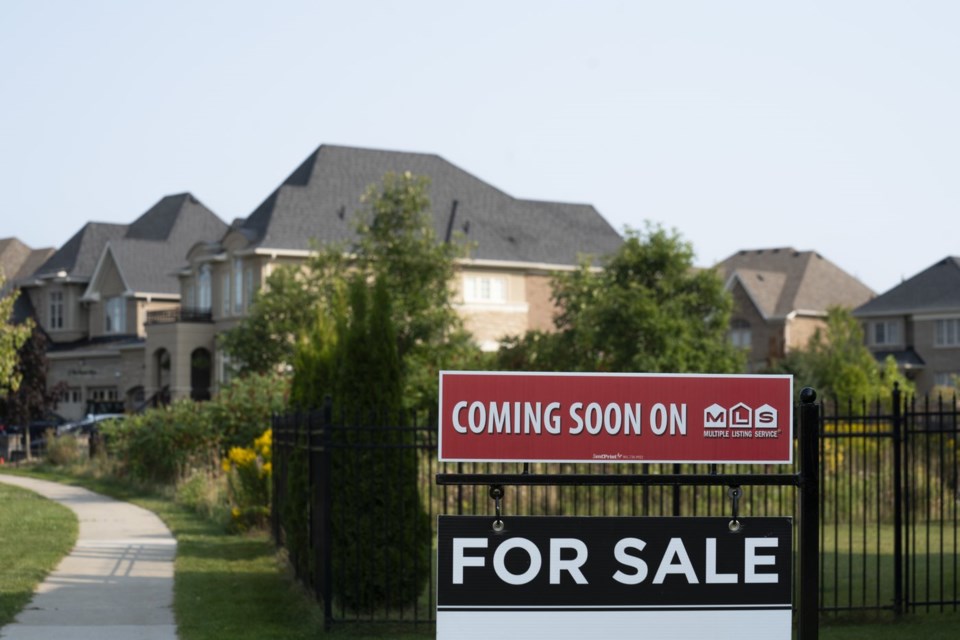The Canadian Real Estate Association downgraded its forecast for home sales this year, while it also reported Tuesday the number of homes that changed hands across the country in March fell 9.3 per cent compared with a year ago.
The association said Canadian home sales in March also fell 4.8 per cent on a seasonally adjusted month-over-month basis from February, as potential buyers stayed on the sidelines amid concerns over tariffs and economic uncertainty.
In its revised forecast, CREA now expects a total of 482,673 residential properties to be sold this year, essentially unchanged from 2024, but a steep cut from its forecast in January which predicted an 8.6 per cent increase.
The change marked the largest revision by CREA in between its quarterly forecasts since the 2008-2009 financial crisis, the association said.
“Up until this point, declining home sales have mostly been about tariff uncertainty. Going forward, the Canadian housing space will also have to contend with the actual economic fallout," CREA senior economist Shaun Cathcart said in a news release.
"In short order we’ve gone from a slam dunk rebound year to treading water at best."
The national average home price is forecast to decrease a slight 0.3 per cent on an annual basis to $687,898 in 2025, which would be around $30,000 lower than predicted in early January.
In March, the national average sale price fell 3.7 per cent compared with a year earlier to $678,331.
With 39,202 home sales recorded during the month, activity was at its lowest level for March since 2009, the association said. It noted sales have been down over the last few months in all but a handful of small markets across the country, with the largest declines seen in Ontario and B.C.
Re/Max area vice-president Kingsley Ma said that for many would-be buyers who were already in wait-and-see mode over high interest rates, tariffs have only added to their hesitance.
"Now they're like, 'Well, what if I lose my job because of the tariffs?' It's not that they don't have the financial capability to move along to buy something, but they want to be able to see what happens next with their jobs so they can plan ahead," he said.
"I think that's what will continue to happen at least for the next couple of months because people are just not sure what to do with what's coming ahead."
The number of newly listed properties rose three per cent month-over-month in March. Meanwhile, a total of 165,800 properties were listed for sale by the end of the month, up 18.3 per cent from a year earlier but still below the long-term average of around 174,000 listings for this time of the year.
"Notably, markets are hugely tilted in the favour of buyers in B.C. and Ontario and are even loosening rapidly in the once drum-tight Alberta market," TD economist Rishi Sondhi said in a note.
He added the trend of increasing supply and subdued demand suggests Canadian average home prices will decline in the second quarter following a five per cent drop in the first three months of the year.
While some buyers could look to take advantage of falling home prices, Ma said many will need to see the tariff situation settle before they make a move.
He said the fall season is probably the earliest the market could pick back up if tariffs are done away with.
"You're still probably going to look at a couple months for people to gain confidence in order to plan ahead," he said.
CREA said Tuesday it now forecasts national home sales to improve by 2.9 per cent to 496,487 in 2026. The national average home price is expected to edge up 1.2 per cent from 2025 to $696,074 next year.
This report by The Canadian Press was first published April 15, 2025.
Sammy Hudes, The Canadian Press




